#Tuatha Dé Danann
Text

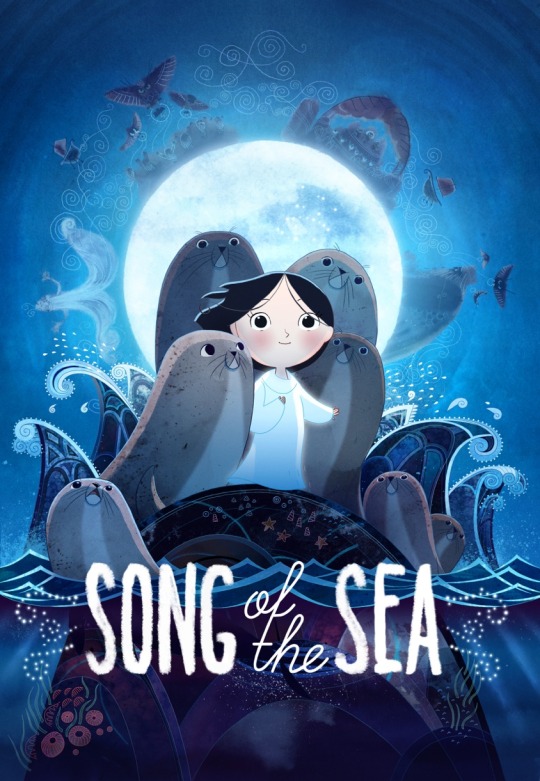
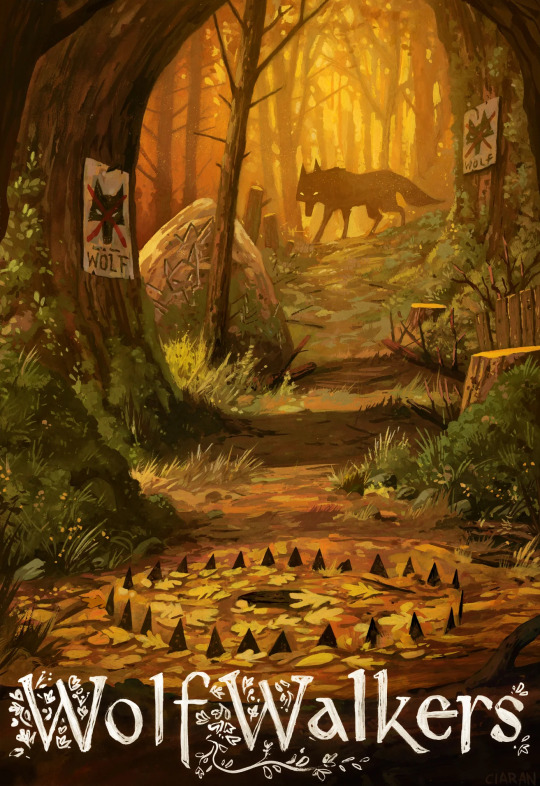
they dont get enough love
#the secret of kells#song of the sea#wolfwalkers#cartoon saloon#animation#movies#tuatha dé danann#aos sí#selkie#ireland#irish mythology#celts#celtic mythology#personal
94 notes
·
View notes
Text
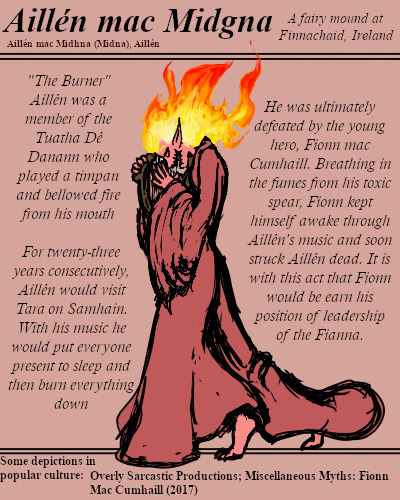
The fire-breathing Aillén, a wicked musician of the Tuatha dé Danann who was the bane of Tara for 23 years.
#BriefBestiary#bestiary#digital art#fantasy#folklore#legend#myth#mythology#fairy#fae#faerie#tuatha dé danann#tuatha de danann#samhain#aillén#aillén mac midgna#aillén mac midhna#aillén mac midna#the burner#aillén the burner#fionn mac cumhaill#boyhood deeds of fionn mac cumhaill#tara#hill of tara#irish folklore#irish mythology#irish legend#monster
112 notes
·
View notes
Text
Áine, Celtic Goddess
Water had a special magic for the Celts as a symbol of vitality and inspiration. The fact that it could capture lights (for example, a reflection of the setting sun) could not be rationally explained and was taken as proof of supernatural properties. Wells and springs were charged with magic powers. Lakes and rivers were the dwelling-places of otherworldly beings, like the Lady of the Lake in…
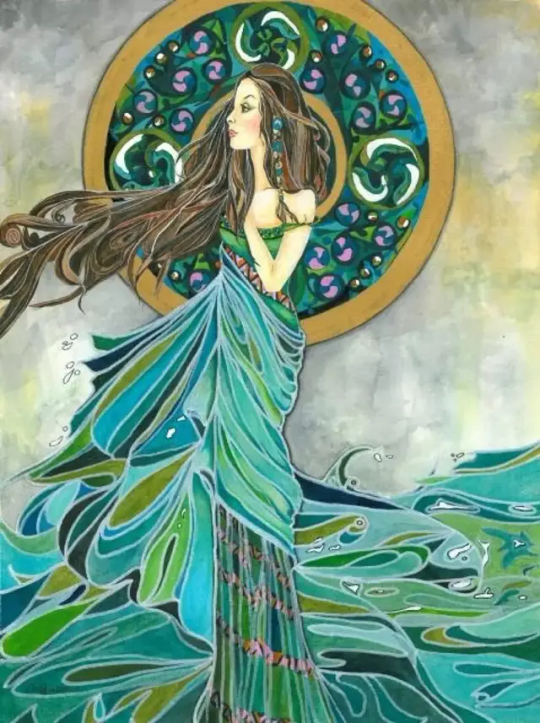
View On WordPress
#Áine#Celtic Goddess of Love#Co. Limerick#Fertility#Goddess#Knockainey Hill#Lakes#Ocean#Rivers#Sovereignty#Summer#Sun#Tuatha Dé Danann#Water
33 notes
·
View notes
Text
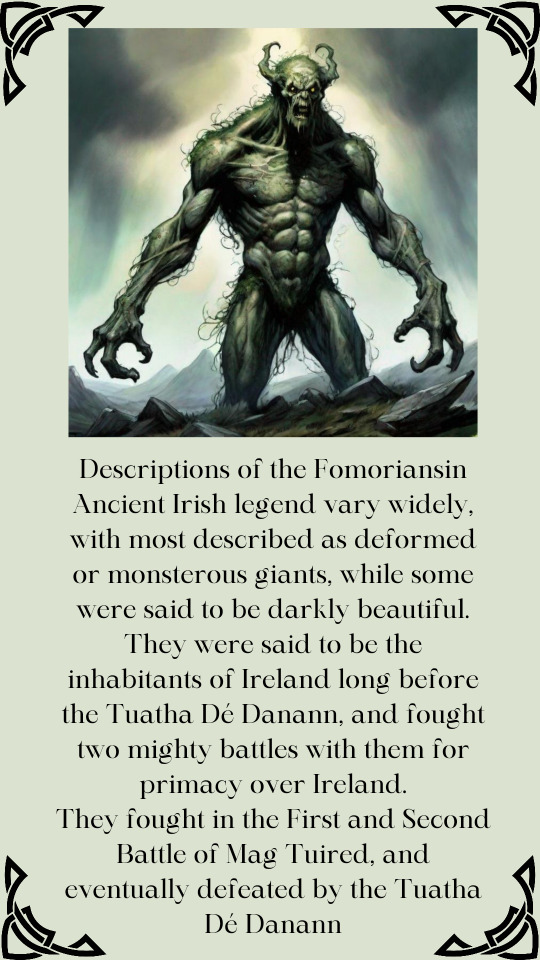
#Fomorians#Tuatha Dé Danann#ancient ireland#irish folklore#irish mythology#myths and legends#myths and monsters#monster art#celtic mythology
5 notes
·
View notes
Text

Els genets dels Sídhe, per John Duncan. Tremp d'ou en tela, 114'3 x 175'2; 1911.
#art#pintura#Sídhe#Tuatha Dé Danann#Tuath Dé#Aes sídhe#Aos Sí#daoine sìth#daoine sí#Gent blanca#White people#Fair people#fada#raça fadenca#fadenc#mitologia#mitologia europea#mitologia cèltica#mitologia celta#John Duncan#1911
14 notes
·
View notes
Text
*Deh₂nu
*Deh₂nu- is a hypothetical goddess of water in Proto-Indo-European mythology, with connections to the names of rivers like the Danube, Don, Dnieper, and Dniester, as well as the Vedic deity Dānu, the Irish Danu, and the Welsh Dôn. Despite acknowledging a possible lexical connection, Mallory and Adams contend that there is not enough evidence to support the idea that a distinct river goddess existed in Proto-Indo-European beliefs. They primarily highlight the Indic tradition's understanding of river deification. Furthermore, Mallory and Adams suggest that a theory for a sea god called *Trih₂tōn—whose name is derived from the Greek Triton and the Old Irish word for sea, trïath—is unsupported by the lack of a corresponding sea god in Irish mythology and only minor lexical similarities. The Ossetian god Donbettyr is also mentioned in the story. Who is placated by gifts to keep the waterwheel turning, and who Donnán of Eigg proposes as a Christian equivilent of this figure.
Moreover, this deity and the Dan river in Centeral Asia may have similar etymologies.
She is frequently seen as the mother of a mythical tribe, the *Deh₂newyóes, in many Indo-European cultures; these tribes are deduced from the Vedic Danavas, the Irish Tuatha Dé Danann, the Greek Danaoi, and the Norse Danes. Under Bel's leadership, this tribe is said to have fought a hero called *H₂nḗrtos, which could connect them to characters like the Norse god Njord, the Nart from the Nart saga, and Indra's epithet nrtama.
#Irish#Vedic#Norse#Nart#Mallory#Irish Danu#Welsh Dôn#Irish mythology#hypothetical goddess#Proto-Indo-European#Welsh#Adams#Indic#Greek#Old Irish#Ossetian#Christian#Dan#Central Asia#Indo-European#Vedic Danavas#Tuatha Dé Danann#Danaoi#Bel#deity#sea#river#Norse Danes#tribe#druidicentropy
4 notes
·
View notes
Text
youtube
Did Tolkien "Invent" Elves??
#jess of the shire#elves#christmas elves#fairies#fae#aes sídhe#tuatha dé danann#mythology#folklore#fairy tales#fantasy#storytelling#tropes#william shakespeare#jrr tolkien
2 notes
·
View notes
Link
Peadar O’Guilin’s brutal novel ‘The Call’ is set in an apocalyptic version of Ireland, where the country has been closed off from the world by supernatural means, with no one able to enter, or leave. The unfortunate number who remain are slowly being whittled down, stolen away by the chilling Daoine Sídhe – the fairies of Irish legend.
At fourteen, protagonist Nessa has a one is ten chance of making it to adulthood – most assume her odds will be even lower after an unfortunate resurgence of Polio in her childhood left her legs damaged. But Nessa is determined to survive the Call, which snatches adolescents away to the realm of the fairies, where most will find themselves dead at the hands of the Tuatha Dé Danann.
Keep Reading
#The Call#Peadar O’Guilin#Tuatha Dé Danann#Sídhe#Daoine Sídhe#Fairies#Mythology#Myths#Myths and Legends#Irish Myths#ireland#Book Recs#Book Reviews#Fantasy#Horror#Body Horror#Magic#Changelings#Stolen by Fairies#Fairyland#Mythos Reviews#Mythos Articles#Milesians#The Grey Lands#Nessa#Fae
10 notes
·
View notes
Text
Tuatha Dé Danann t̪ˠuəhə dʲeː d̪ˠan̪ˠən̪ˠ
Los Tuatha Dé Danann (AFI gaélico: /t̪ˠuəhə dʲeː d̪ˠan̪ˠən̪ˠ/ AFI hibernoinglés: /ˈtuəhə deɪ ˈdɑːnən/) es decir «pueblo de la diosa Danu» también llamados Tuatha Dé, es decir: "pueblo de los dioses", fueron el quinto grupo de habitantes de Irlanda según la tradición del Lebor Gabála Érenn (Libro de las Invasiones). Se trata de los antiguos dioses irlandeses goidélicos a los cuales los redactores cristianos convirtieron en soberanos y héroes históricos
Incluso después de ser reconocidos como gobernantes de Irlanda, personajes tales como Lug, Mórrígan, Aengus y Manannán mac Lir aparecen en las historias ubicadas siglos más adelante, demostrando todos los signos de inmortalidad.
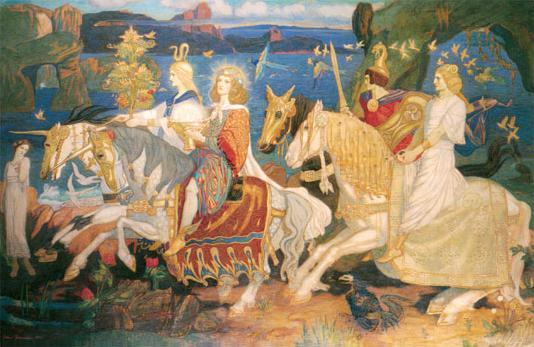
Ériu
también conocida como Éire o Erin. en la mitología irlandesa, hija de Ernmas de los Tuatha Dé Danann, era la matrona epónima diosa de Irlanda. El nombre inglés para Irlanda viene del nombre Ériu y «land» que procede del germánico, el antiguo noruego o el anglosajón.

#Tuatha Dé Danann#mitos#anthropology#travel#t̪ˠuəhə dʲeː d̪ˠan̪ˠən̪ˠ#pueblo de la diosa Danu#pueblo#diosa#Danu#dioses#irlanda#Lebor Gabála Érenn#Libro de las Invasiones#antiguedad#antiguos dioses#irlandeses#historia#heroes#gobernantes#Lug#Mórrígan#Aengus#inmortalidad#Ériu#Éire#Erin#mitología#irlandesa#Ernmas#inglés
6 notes
·
View notes
Text
The Fomori: Ireland's Mythical Raiders from the Sea - Historic Mysteries
https://www.historicmysteries.com/fomori/
View On WordPress
#Battle of Mag Tuired#Conarid#Fomoire#Fomoiri#Fomorach#Fomoraig#Fomori#Goidellic#Ireland#Lebor Bretmach#Middle Irish#Morc#Nemed#Noah#Old Irish#Tuatha Dé Danann
0 notes
Text

This bunny loves any excuse to wear his fancy hat, but still tips it to the Tuatha Dé Danann between shamrock shakes.
1 note
·
View note
Text
youtube
So, started playing King Arthur: Knight's Tale.
Gotta admit, the portrayal of the Battle of Camlann is badass, and as someone who devoted a not-insubstantial amount of his time to their previous King Arthur games as a kid, I'm really excited to see what this one does.
#king arthur#king arthur: knight's tale#arthurian legend#granted I know I'm going to be annoyed just by reading a few quick character bios#The Lady of the Lake is a member of the Tuatha Dé Danann for one which is part of the same issue I had with the previous games#which used 'Irish Pagan' as a synonym for 'Pagan' despite Ireland maybe not even existing in this world#and given that I bet you anything the Fomorians are going to be involved in the Befuckening#but also hey Neocore had possibly my favourite video-game version of Morgan in King Arthur 2 so I'm excited for that at least#Youtube
7 notes
·
View notes
Note
the pride of having submitted both those asks getting a good grade in anon something that is both-
kissing u
#also getting a good grade in not-‘anon’#i should have known though i was like ‘this is a specific 🧠 thing yet again’#i’m actually chewing the walls thinking about the seanchan like shut up shut up#just… some texts so delicate with language & others having me like 👀 wait that’s irish 🤔 but also… japanese? and like… indelicately#aes sedai & the gaelic roots of THAT. don’t get me started on the tuatha’an and the tuatha dé danann#oh and the post about the aiel influences where it’s like ‘no it’s not just a dune reference’#anyway hi going insane love u#‘anon’
3 notes
·
View notes
Text
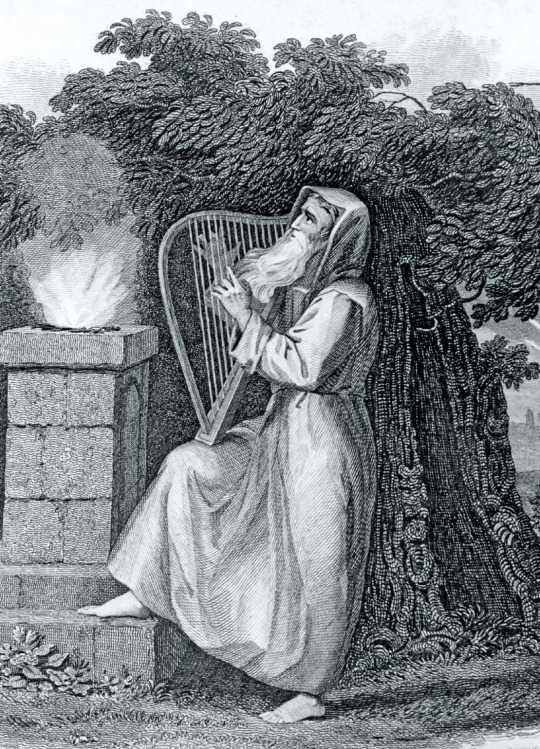
Els Tuatha Dé Danann són els representants més elevats d'un dels dos principis que regeixen el món. El més antic d'aquests és negatiu (mort, nit, ignorància, maldat); el segon, que deriva del primer, és positiu (vida, dia, coneixement, bondat). En els Tuatha Dé Danann veiem l'expressió més brillant del segon principi; i d'ells en sorgeix la saviesa dels druides i la ciència dels file, els poetes.
9 notes
·
View notes
Text
*H₂eryo-men
* H₂eryo-men is the fictitious name for a deity in Proto-Indo-European religion, linked to healing, the formation of marriage, and the construction and maintenance of roads or paths. The deity is believed to be responsible for community well-being.
The noun *h₃eryos, which means "a member of one's own group" or "someone belonging to the community," as opposed to a foreigner, is the source of the term *h₂eryo-men. Further derivatives of this root are the Indo-Iranian *árya, "noble, hospitable", and the Celtic *aryo-, "free man" (most notably as aire, "noble, chief" in Old Irish, and as arios, "free man, lord" in Gaulish).
Xaryomen is another spelling of his name.
The Vedic god Aryaman, who is mentioned in the Vedas for his ties to social and matrimonial ties, is one of the descendant deities in later traditions. Similarly, the Iranian god Airyaman, mentioned in the Gāthās, is invoked in prayers to ward off illness, sorcery, and evil. He represents the larger tribal community or alliance. The legend that tells the story of Ireland's founding names the hero Érimón as the first king of the Milesians, the mythical people who inhabited the island after it was taken from the Tuatha Dé Danann. This legend also addresses the roles that *h₂eryo-men played in marriage by giving wives to the Cruithnig, the mythical Celtic Britions or Picts. The influence of the deity is further demonstrated by the Gaulish name Ariomanus, which means "lord-spirited" and was frequently used by Germanic chiefs.
#Gaulish#free man#Proto-Indo-European#Indo-Iranian#Celtic#Old Irish#Vedic#Iranian#Gāthās#Érimón#Milesians#Tuatha Dé Danann#Celtic Britons#Picts#Germanic#community#name#meaning#noble#mythical#marital#man#god#druidicentropy
0 notes
Text
hell my music playlist just wrecked me with Epic iii and then suddenly I hear the first few notes of An Toll Dubh.. shoutout to Runrig for making the most heart wrenching songs.
#I have no chance of ever fully learning the intrinsics of Gaelic but 2 of my dream uni courses are Celtic language focused#I’ll probably specialise in Welsh more but I hope that I do pick up enough proficiency in Gaeilge and Gaelic to read the Tuatha Dé Danann#and of course also understand some Runrig songs#Runrig#“It’s really important… that we keep singing… keep playing- keep performing the Gaelic songs”#o7
3 notes
·
View notes